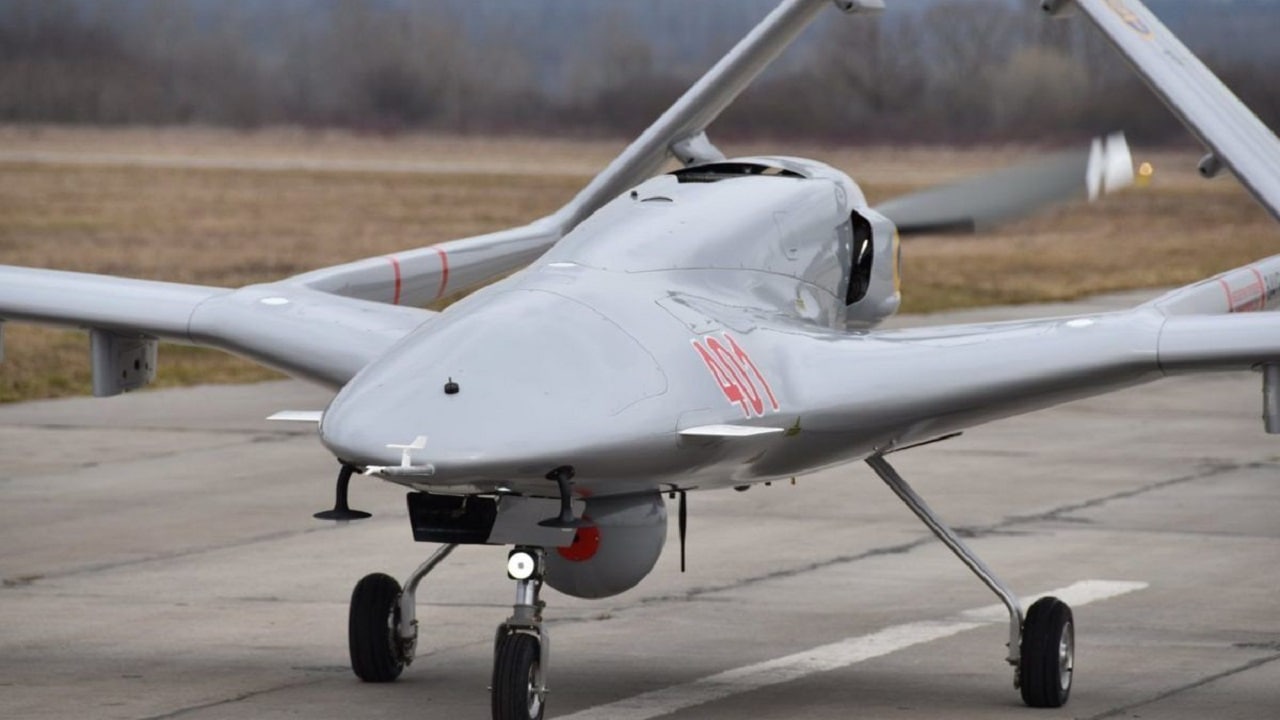What We Know About the Sevastopol Drone Attack: Russia’s Black Sea fleet vessels were targeted by more than a dozen Ukrainian drones in the Bay of Sevastapol, Crimea, at 4:20am Kyiv time on Saturday. The Kremlin confirmed the attack, claiming that nine of 16 drones were destroyed before they could cause any damage.
Four of seven maritime drones were reportedly destroyed before they reached the bay, while an additional three were able to breach the outer perimeter of the bay before they were destroyed by Russian forces.
Russia claims the damage caused by the strike was minor, with the minesweeper Ivan Golubets impacted by the explosions.
The Russian Ministry of Defense described the incident as a “terrorist attack.”
“Today at 4.20 a.m., the Kyiv regime carried out a terrorist attack on the ships of the Black Sea Fleet and civilian ships that were on the outer and inner roadsteads of the Sevastopol base,” an official statement shared on Telegram reads.
The Kremlin initially claimed that the attack caused no damage to its Black Sea fleet, much like what happened when Ukrainian forces first struck the Moskva flagship earlier this year but was later forced to admit that some damage was incurred after Ukraine released video footage showing how the strike panned out.
Russia accused the United Kingdom of having some level of involvement in the strikes, claiming that the attack was carried out by Ukraine’s 73rd Marine Special Operations Center with the support and guidance of British navy specialists stationed in Ochakiv, a town on the coast of the Black Sea. However, the British government denied any involvement in the attack.
“To detract from their disastrous handling of the illegal invasion of Ukraine, the Russian Ministry of Defence is resorting to peddling false claims of an epic scale,” a British Ministry of Defence spokesperson said over the weekend.
Some analysts believe that Russian flagship Admiral Makarov may have been hit by the strikes.
Analysts also noted that the strikes in the Bay of Sevastopol were the first ever air-sea robotic strikes to take place during a real combat situation.
Watch history being made. | Ukraine attacks the Russian Sevastopol Naval Base using drone boats and aerial drones. Per @ckasapoglu1 this is the first such strike ever: the first air-sea robotic strike in the world in a real combat situation, ever. pic.twitter.com/nNOY1JBqr3
— Mike (@Doranimated) October 29, 2022
Was the U.S. Involved?
Russia also accused United States aircraft of assisting Ukrainian forces in delivering the strikes at Sevastopol on Saturday morning, and Russian news outlets also published information apparently showing an American RQ-4 Global Hawk drone flying south of Crimea to back up those claims.
According to Russian Pravda, the U.S. reconnaissance drone flew over the Black Sea, meaning that it could have been used to coordinate the strikes. Pravda reported that the aircraft with tail number 11-2046 and call sign FORTE10, which also belongs to the Pentagon, took off from a NATO airbase in Sicily. Pravda reported that the drone then “watched the waters of the Sevastopol Bay, circling over the neutral waters of the Black Sea.”
Russia Suspends Grain Deal
In response to the attacks, the Kremlin confirmed that it will no longer abide by the conditions of a United Nations-brokered grain export deal. The deal, which came after more than six months of the Russian military blocking grain ships from leaving Ukrainian ports on the Black Sea coast, could have helped prevent a food shortage in some parts of Europe and Africa.
A spokesperson for the Russian Ministry of Defense told Russian news agency TASS that the Kremlin has since suspended all “participation in the implementation of agreements on the export of agricultural products from Ukrainian ports.”
The Ukrainian infrastructure ministry responded on Saturday by saying the initiative has an “exclusively humanitarian character” and warned that food shortages would follow if Russia goes ahead with the plan to rip up the deal. Some 9 million tons of grain and food goods left the ports since the agreement came into effect on August 1, as well as an additional 190,000 tons of grain that were being sent to countries in the Middle East and Africa.
While the Black Sea strikes could have caused serious trouble for the Russian military in Crimea, they may have given Russia an excuse to renege on the deal for the sake of leverage. Choosing to suspend the agreement could now give Russia some more leverage in negotiations should they restart again soon.
Jack Buckby is a British author, counter-extremism researcher, and journalist based in New York. Reporting on the U.K., Europe, and the U.S., he works to analyze and understand left-wing and right-wing radicalization, and reports on Western governments’ approaches to the pressing issues of today. His books and research papers explore these themes and propose pragmatic solutions to our increasingly polarized society.

